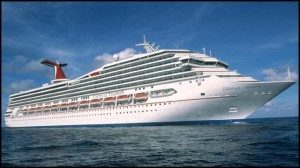 I often mention the differences between a social media crisis and a social media issue. Yesterday, I evaluated how JC Penney handled their recent social media issue like a pro, and how they will suffer no negative consequences as a result – which is what defines it as an issue, rather than a crisis.
I often mention the differences between a social media crisis and a social media issue. Yesterday, I evaluated how JC Penney handled their recent social media issue like a pro, and how they will suffer no negative consequences as a result – which is what defines it as an issue, rather than a crisis.
Today, let’s evaluate the repercussions of a crisis. In doing this, I hope to help you clearly differentiate between a social media crisis and a social media issue.
Remember! A social media crisis has, or has the potential of having, a negative impact on your brand’s reputation and/or bottom line. A social media issue does not; though that doesn’t lessen the importance of properly responding to an issue in a timely matter, since social media issues can quickly escalate into crises when not dealt with properly.
So, what do I mean by a crisis having a negative and potentially long-term impact on your business’s bottom line and/or reputation?
Carnival Cruise is a perfect example of this
Yes, it’s true that the Carnival Triumph’s “poop cruise” crisis originated as a traditional crisis, rather than an online one. However, both crises are intertwined these days since the second something negative happens on-land / in real life, it finds itself online. Hence the necessity for your crisis communications plan to have a very thorough social and online emphasis.
So how is Carnival Cruise Lines suffering from their crisis?
Months after the “poop cruise” incident, Carnival Cruises is still struggling to convince customers to trust them and book their cruises with the cruise line. Even with their super low pricing and major discounts offered, both the Cruise line’s reputation and bottom line are suffering immensely.
But that’s not all!
Shortly after the “poop cruise” crisis, Senator Charles Schumer (D-NY) attempted to have a Cruise Ship Bill of Rights passed. This Bill of Rights would have:
Demand[ed] Pledge That Ships Have Functioning Backup Generators; Staff Trained In Emergency Procedures; Proper Medical Personnel; The Right For Passengers To Disembark, and More
Since Schumer’s movement to pass this Bill, the Cruise Lines International Association (CLIA) has approved the adoption of a Cruise Passenger Bill of Rights. This new Bill of Rights is immediately effective for passengers in the U.S., though the CLIA is also going to “submit the Passenger Bill of Rights to the International Maritime Organization (IMO), requesting formal global recognition and applicability under the IMO’s authority over the international maritime industry.”
Talk about a crisis!
Carnival Cruise’s crisis (can you say tongue-twister?!) has not just affected the organization’s own brand and bottom line, but has majorly impacted and demanded higher standards throughout the industry, potentially on a global scale. Now that’s a crisis!
If you closely examine this crisis, with JC Penney’s recent issue, you can clearly see the difference between a crisis and an issue. Both had viral potential and both needed to be dealt with immediately, though only one had the potential of having a direct and powerful long-term impact on the brand’s reputation and bottom line.

Author of Crisis Ready: Building an Invincible Brand in an Uncertain World, Melissa Agnes is a leading authority on crisis preparedness, reputation management, and brand protection. Agnes is a coveted keynote speaker, commentator, and advisor to some of today’s leading organizations faced with the greatest risks. Learn more about Melissa and her work here.

Great post Melissa. The Carnival Cruise example you cite is definitely a crisis and the "fallout" of the proposed legislation is exactly what happens in Stage Four (of how the media report a crisis). There are always unintended consequences in every issue and every crisis, but every crisis will have fallout, and sometimes it affects the entire industry, not just the impacted organization.
Hi Janie,
Yes, you're absolutely right. It's also a clear example to help others better their ability to differentiate between crisis and issue – a very important difference that each company needs to be aware of and have defined for themselves.
Hi Jane and Melissa,
i agree with your opinions.One point i believe that in Carnival, affects exists in the entire of industry a long term before,because Carnival has many serious crises in the last years.
Seems to me that the Cruise Passenger Bill of Rights is a positive outcome.
While it will cost Carnival to implement improvements, they will result in increased consumer confidence and longer term improvements in service that will help the cruise industry. And since Carnival is such a big player, they can probably put in place the resources needed to meet the requirements – which could help them get over the negative impacts of their crisis.
Hi Andrew,
Nothing's to say that simply implementing these new standards (which should have always been the bare-minimum anyway) will help Carnival rebuild its reputation and regain the trust of its market. However, it's a start – though much more work is going to be needed in order to fully recover from these recent crises and their repercussions on the brand.